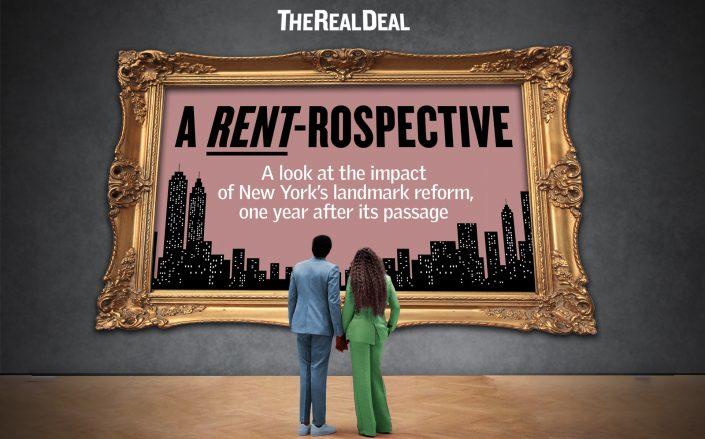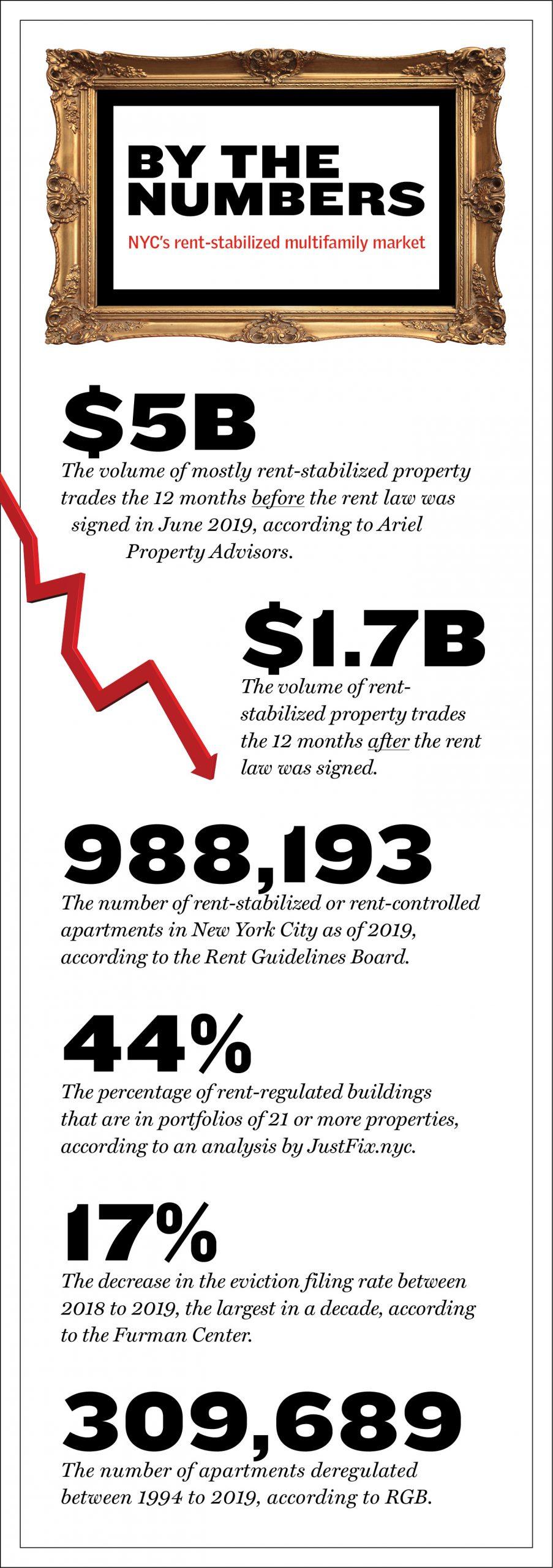
Last year’s changes to the rent law brought the New York City multifamily market to a screeching halt.
With nearly all avenues for raising rents in rent-regulated apartments closed, experts predicted capital flight, disinvestment and a deterioration of the city’s housing stock.
A year after the rent law’s passage, The Real Deal’s Kathryn Brenzel and Georgia Kromrei set out to assess the impact the legislation has had so far. Some of the city’s top brokers reflected on the financial fallout, and who the long-term winners and losers might be.
Last July, two real estate trade associations filed a federal lawsuit to strike the law down on the basis that it is unconstitutional. Before the pandemic, the lead lawyer for the case sat down with TRD to explain the legal strategy and why it should be argued before the Supreme Court.
As legislators hacked the previous rent law to pieces, some additional questions were raised — such as how the changes will affect the old 421a program. Some lawmakers have even suggested they would be open to tying off some of those loose ends.
Fresh off their legislative coup, tenant advocates have had a hard time ticking more items off their agenda. In recent months, tenants have launched rent strikes, renewed their push for “good cause” eviction and urged lawmakers to cancel rent during the pandemic, with little success. But don’t count them out — especially as primaries heat up, where real estate continues to be in the sights of progressive challengers.
Finally, Joseph Strasburg, a longtime advocate for the real estate industry, known for a brash and sometimes controversial style, sits down with TRD to discuss the changes over the years.
Rent law cheat sheet:
- Major Capital Improvements and Individual Apartment Improvements weren’t eliminated, as tenant advocates initially sought. But the programs were significantly limited: MCIs and IAIs were capped at 2 percent and $15,000, respectively. They both expire after 30 years.
- Tenants have 30 days to cure lease violations, up from the previous 10.
- Luxury decontrol, the vacancy bonus and vacancy decontrol were eliminated.
- If a tenant breaks a lease, a landlord is now required to try to find a new tenant instead of charging the tenant the unpaid portion of the lease.
- Landlords cannot charge legal rent after charging a preferential rate until an apartment is vacated.
- The “tenant blacklist” is no longer a thing.
- Application fees, including background checks, are now capped at $20.
- The rent law no longer has an expiration date.

